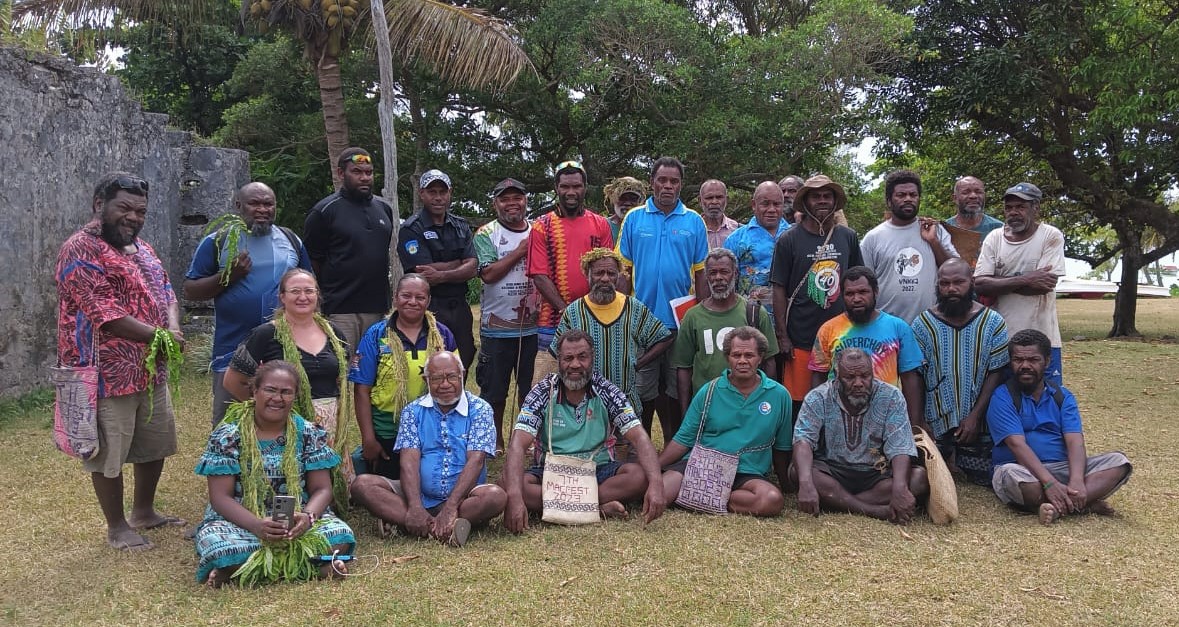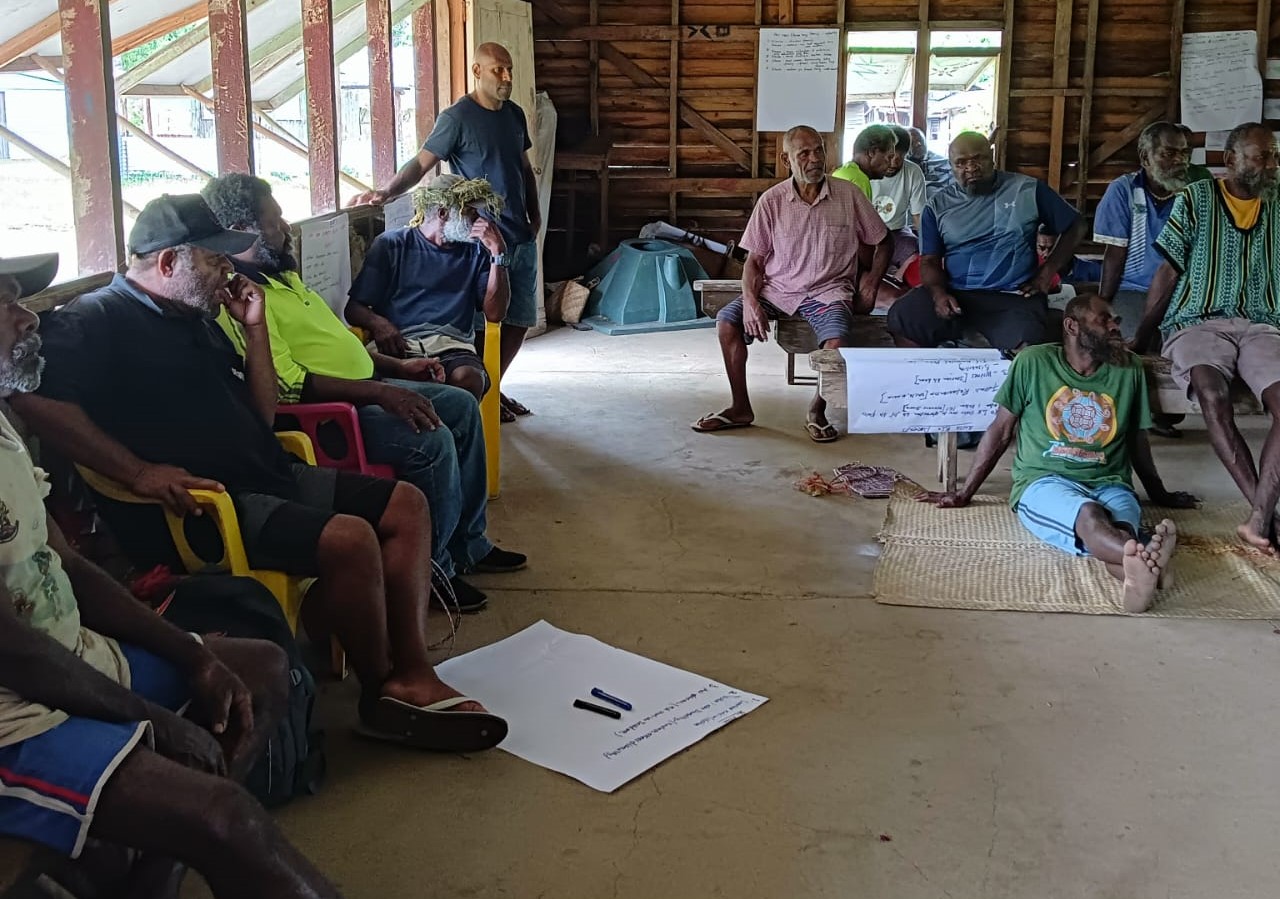
PORT VILA, DECEMBER 20: Last week, 43 years after independence, chiefs on Vanuatu’s southernmost island of Aneityum welcomed teams raising awareness of the country’s laws for the first time. Malvatumauri, with support from the Vanuatu Australia Policing and Justice Program (VAPJP), has developed a workshop to help chiefs perform their customary law roles in communities and to better understand the state-made laws of Vanuatu.
This effort was first piloted on Epi Island in May, and last week reached chiefs on Aneityum.
Some chiefs on remote islands have limited exposure to the constitution and other laws passed by parliament, and many participating chiefs stated that this was the first workshop of its kind on the island since Vanuatu’s independence 43 years ago.
With the aim of providing chiefs with simple and engaging information about Vanuatu’s laws relating to common crimes in communities, the workshops support chiefs in understanding how customary law and government law interact.

The week-long sessions also help empower chiefs to understand how laws enacted by the government affect their role as leaders of their communities and highlight how they can work more closely with government judicial authorities, particularly in relation to serious crimes such as sexual and domestic violence.
A particular emphasis is placed on facilitating chiefs to act as advocates against gender-based violence and empower them to build knowledge and awareness in their own communities.
The community workshop in Aneityum came as a big boost for justice on the island. Home to more than 1500 people according to 2020 census data. The island has limited justice services and the resident police officer relies heavily on working together with chiefs to maintain peace and security.
Over five days, 24 participants from the Nafakarau Island Council of Chiefs successfully completed the workshop programme. The content of the workshops included understanding the law, the differences between custom law and state law, the basics of the Vanuatu Constitution and the fundamental rights enshrined therein, the law relating to domestic and sexual violence, common public nuisances, and the workings of the state justice system.
At the end of the week, the chiefs were given the opportunity to provide written feedback and evaluations, and the responses showed that they appreciated the workshop and found the information valuable.

Many participants felt after the workshop that their views on violence against women and children had changed. Participants commented that the information in the workshop would help their leadership in their communities. One participant stated, “I liked the workshop because it will help my work with my people as a leader in my community – to work together and maintain peace and safety in the community.”
The workshop was conducted by facilitators from Malvatumauri and the Department of Correctional Services, with the assistance of VAPJP staff.
